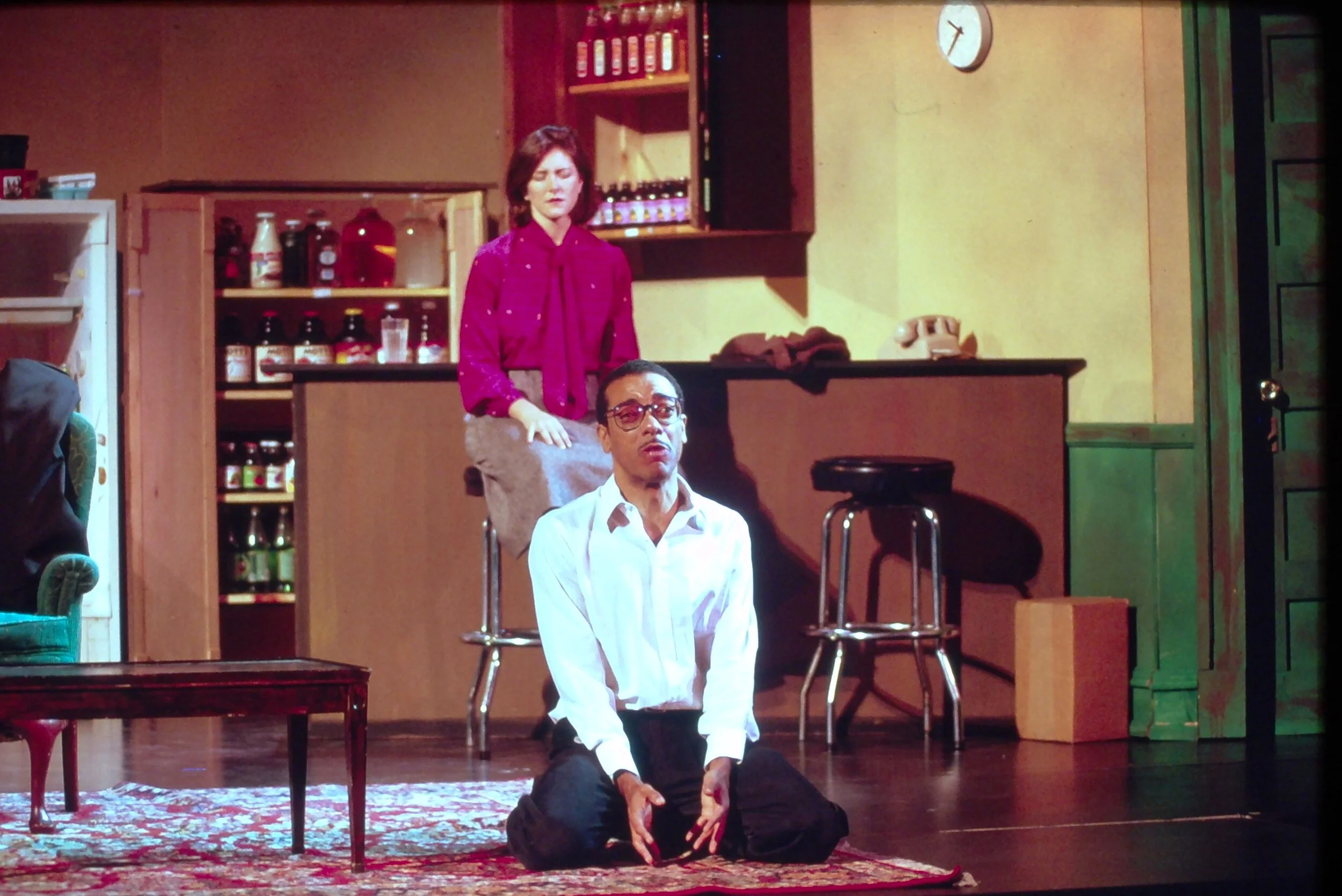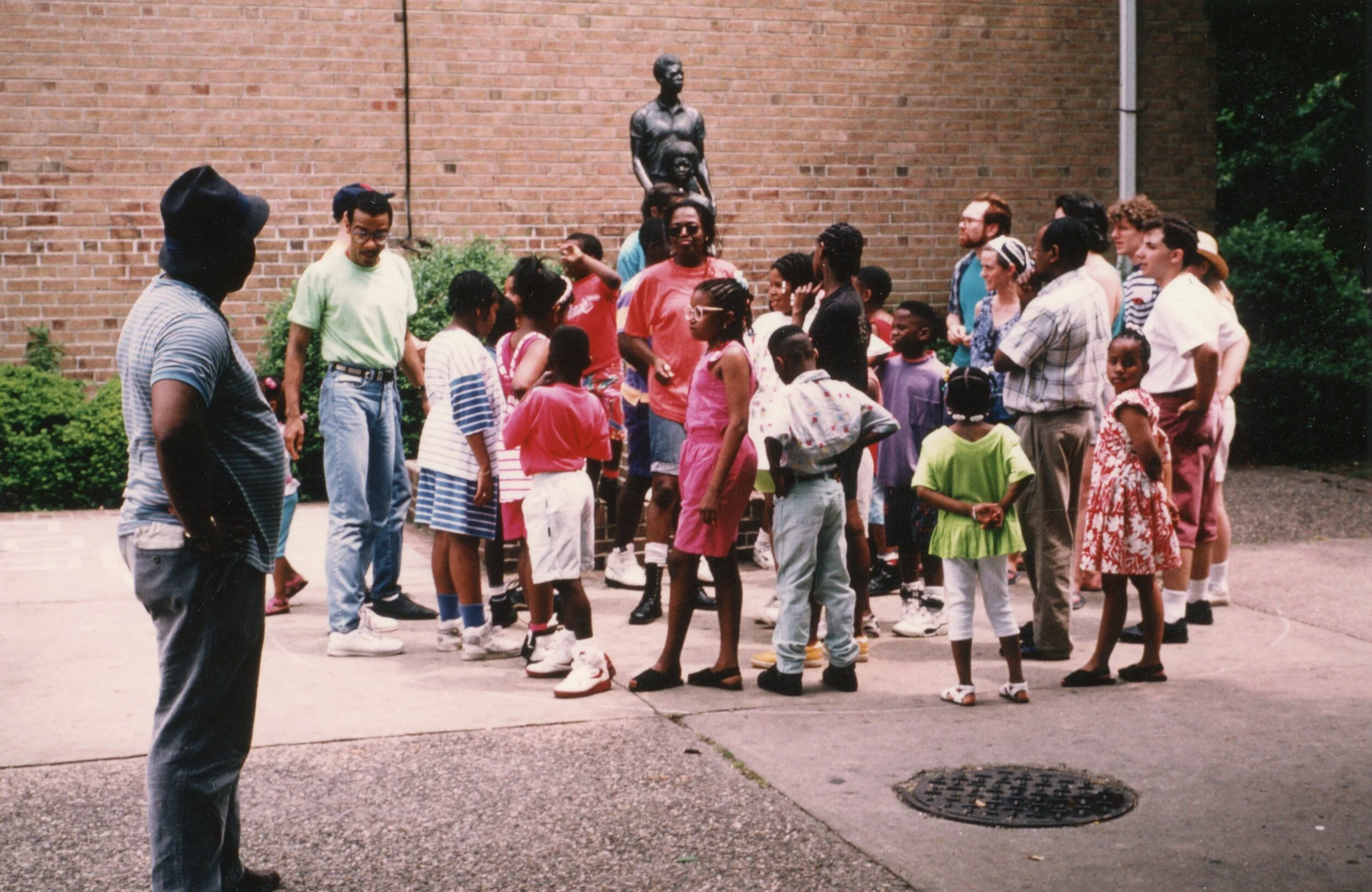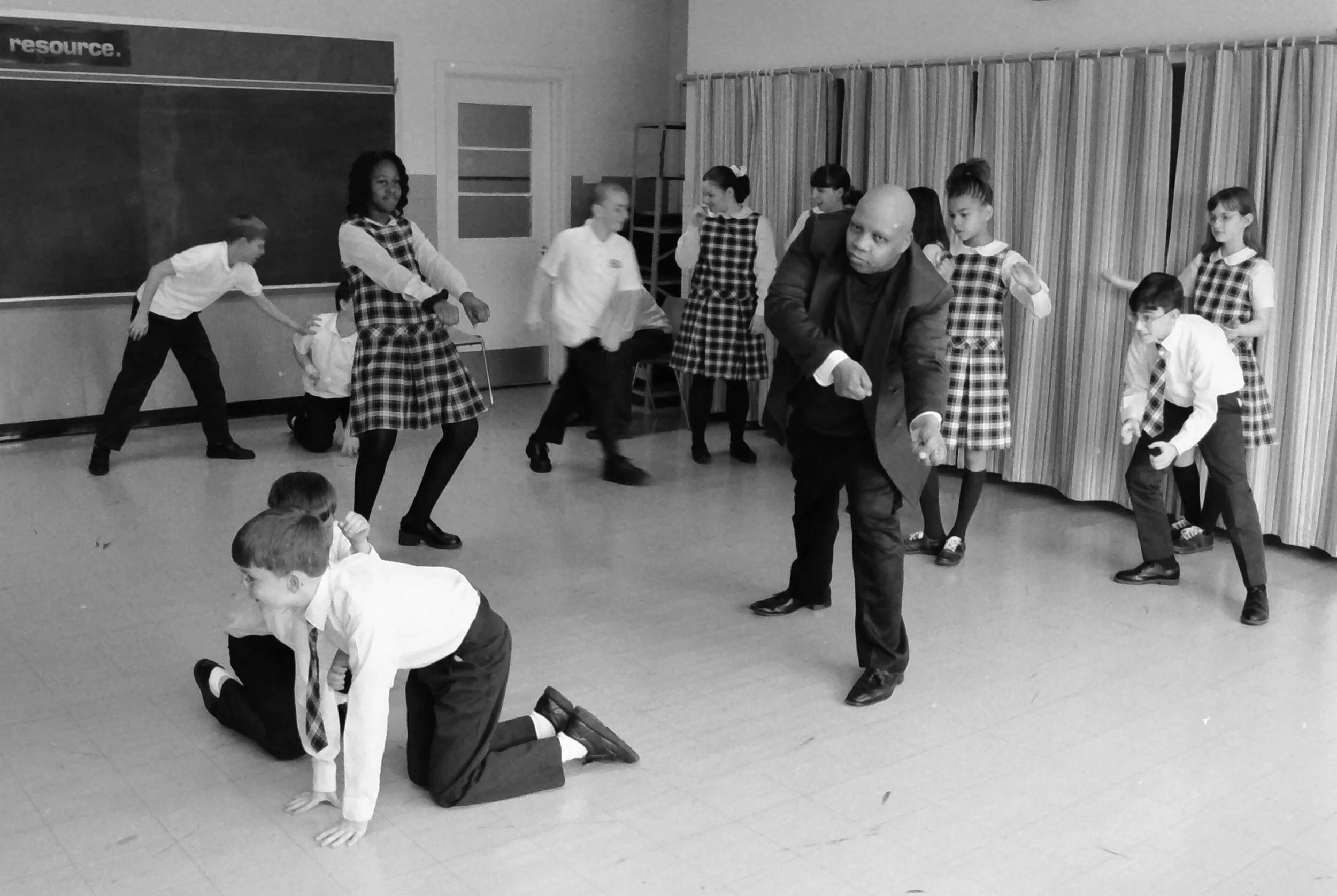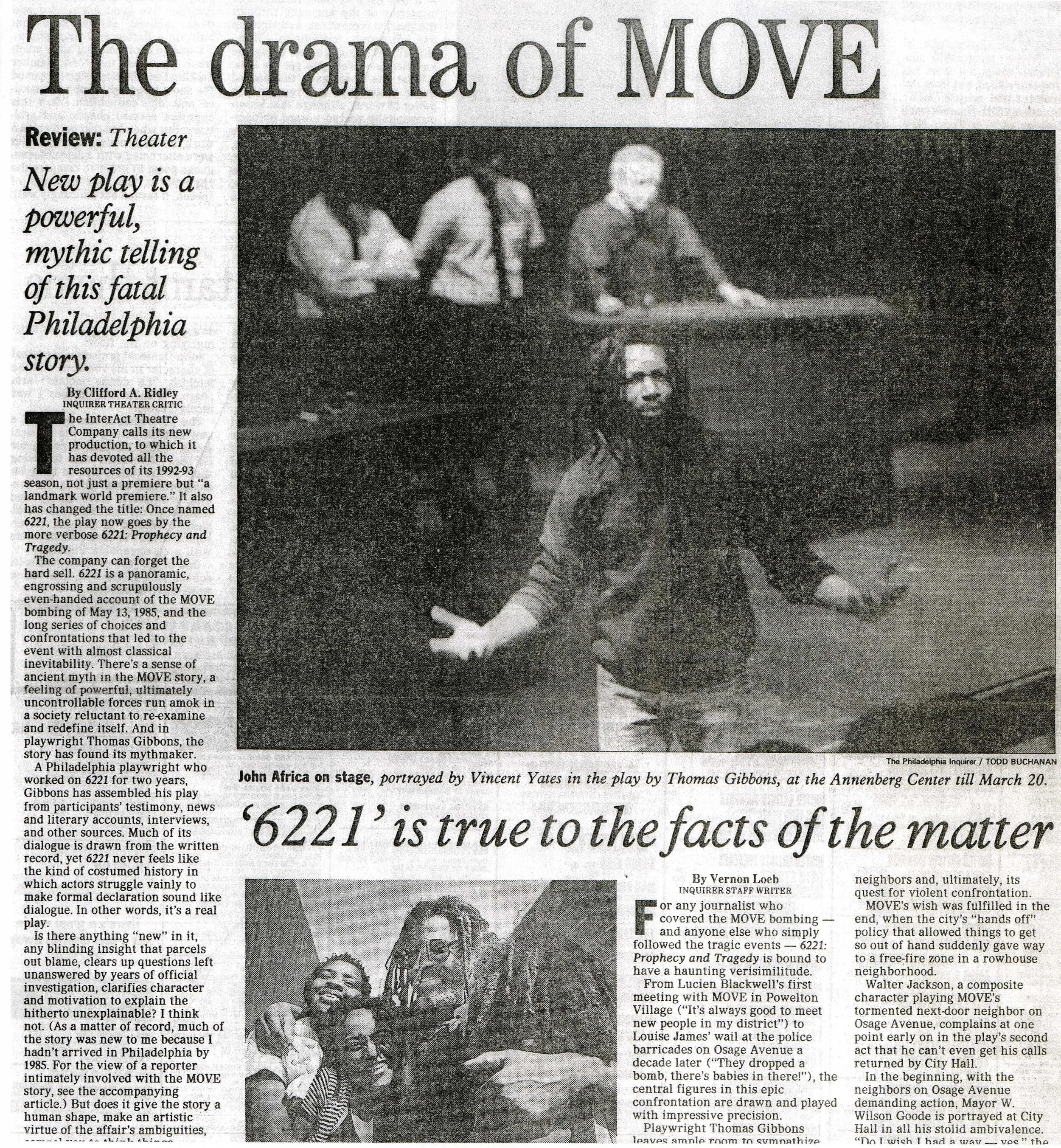THE EARLY YEARS
Evelyn McGee and Frank X inPRETENDING TO AMERICA
Following the tour to Ireland, InterAct had plans to foster an exchange with Hungary and Czechoslovakia in 1989. But that year the “Iron Curtain” fell, and as Europe descended into political chaos it became impossible to plan tours to any of the countries on our target list, while at home it became increasingly difficult to raise funds for cultural activities overseas.
And as InterAct navigated these challenges, some of the founders peeled off to pursue other career opportunities, leaving Seth Rozin to be InterAct’s primary driving force. In order to keep the company afloat, he juggled several jobs, including leading a program that conducted arts activities for homeless mothers and children every Saturday afternoon for eight years.
Lillian Rozin, Stephen Hatzai and Bruce Robinson in MOROCCO
InterAct’s next three seasons marked the evolution of InterAct’s mission, away from international exchange and toward an exploration of social, political and cultural issues, as well as the production of new plays. Among the company’s productions were the regional premieres of Cuban American playwright Maria Irene Fornes (MUD in 1989), and Ntozake Shange’s a photograph: lovers in motion (1990), as well as the company’s first world premiere – Thomas Gibbons’ PRETENDING TO AMERICA (also in 1990), featuring Philadelphia favorite Frank X, and which was later performed at Amnesty International’s 30th Anniversary Conference.
Bruce Robinson, Frank X and Shelita Birchett in STATUES
In 1991, InterAct produced the regional premiere of Alan Havis’ MOROCCO.
And in 1992, InterAct collaborated with the University of Pennsylvania’s inaugural Freshman Reading program with the American premiere of THE BACCHAE OF EURIPIDES by Nigerian playwright Wole Soyinka. Later that same year, InterAct was commissioned by CosaCosa Art-at-Large to produce a site-specific world premiere of STATUES by Michael Hollinger.
Between 1989 and 1992 InterAct employed 75 artists, of which 22 were African American.
Bruce Robinson leading an InterAction workshop
Shelita Birchett, Lillian Rozin, Amani Gethers, Cathy Simpson and Vincent Yates in 6221
In this same period, InterAct launched its educational outreach program, lnterAction, which utilized theatre-based exercises, games, role-playing and improvisation to address such issues as intercultural understanding, religious intolerance and diversity awareness. The wide range of client organizations included West Chester University, National Conference for Community and Justice, and the International Cultural Exchange.
Vincent Yates in 6221
InterAct’s Board President, Roberta Snow, sponsored the company’s first commission to Thomas Gibbons for a play about the MOVE tragedy, called 6221. This epic, three-act docudrama was based on extensive research, including multiple volumes of transcripts from the City’s MOVE hearings, news articles and police reports, as well as interviews with MOVE members, former Mayor Wilson Goode, city officials, journalists and West Philadelphia residents.
Following several months of workshopping and four weeks of rehearsal, InterAct put all its eggs in one basket for the 1993 season with the premiere of 6221. Four days prior to opening night the ATF began a 51-day siege on the Branch Davidian compound in Waco, Texas, which bore striking similarities to the MOVE conflict eight years earlier. With a 15-person cast (including local stalwarts Frank X, Tom McCarthy and Cathy Simpson) and no previews(!) 6221 opened on March 3rd to a packed audience of cultural VIPs, journalists, MOVE members, current and former city officials, and former MOVE neighbors.
Official 6221 Poster
Following the thrilling 2-hour, 40-minute performance, legendary local news anchor Larry Kane moderated a talk back with Gibbons, director Seth Rozin, MOVE member Ramona Africa (the lone adult survivor from the MOVE fire), and former police officer Jim Berghaier (who saved the one MOVE child from the fire and whose life nearly fell apart in the aftermath). The fiery talk back lasted 45 minutes, and could have gone on for 45 more, but there was still a reception to be had in the Annenberg Center Lobby. As people continued to argue and buzz about the show, Jim Berghaier pulled Seth Rozin into a corner of the lobby and said “Watching the show tonight helped to ease my pain.”
6221 garnered rave reviews, but the middle weekend of performances was wiped out by the “storm of the century,” so InterAct revived the production – with some cast changes and script tweaks – the following fall. The Philadelphia Inquirer awarded 6221 its citations for “Best Production” and “Best Director” in 1993, as well as one of the 15 “Best Productions of the Decade.”
6221 was a seminal production, not only for its artistic quality, but for putting InterAct securely on the map; for crystalizing the company’s mission; and for exemplifying the extraordinary power of theatre to be a catalyst for vital community dialogue.








